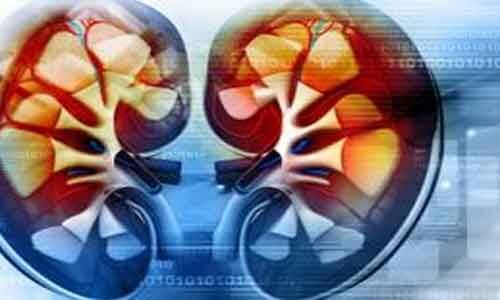- Home
- Medical news & Guidelines
- Anesthesiology
- Cardiology and CTVS
- Critical Care
- Dentistry
- Dermatology
- Diabetes and Endocrinology
- ENT
- Gastroenterology
- Medicine
- Nephrology
- Neurology
- Obstretics-Gynaecology
- Oncology
- Ophthalmology
- Orthopaedics
- Pediatrics-Neonatology
- Psychiatry
- Pulmonology
- Radiology
- Surgery
- Urology
- Laboratory Medicine
- Diet
- Nursing
- Paramedical
- Physiotherapy
- Health news
- Fact Check
- Bone Health Fact Check
- Brain Health Fact Check
- Cancer Related Fact Check
- Child Care Fact Check
- Dental and oral health fact check
- Diabetes and metabolic health fact check
- Diet and Nutrition Fact Check
- Eye and ENT Care Fact Check
- Fitness fact check
- Gut health fact check
- Heart health fact check
- Kidney health fact check
- Medical education fact check
- Men's health fact check
- Respiratory fact check
- Skin and hair care fact check
- Vaccine and Immunization fact check
- Women's health fact check
- AYUSH
- State News
- Andaman and Nicobar Islands
- Andhra Pradesh
- Arunachal Pradesh
- Assam
- Bihar
- Chandigarh
- Chattisgarh
- Dadra and Nagar Haveli
- Daman and Diu
- Delhi
- Goa
- Gujarat
- Haryana
- Himachal Pradesh
- Jammu & Kashmir
- Jharkhand
- Karnataka
- Kerala
- Ladakh
- Lakshadweep
- Madhya Pradesh
- Maharashtra
- Manipur
- Meghalaya
- Mizoram
- Nagaland
- Odisha
- Puducherry
- Punjab
- Rajasthan
- Sikkim
- Tamil Nadu
- Telangana
- Tripura
- Uttar Pradesh
- Uttrakhand
- West Bengal
- Medical Education
- Industry
Mineralocorticoid receptor antagonists beneficial for kidney failure patients: Study

Taipei, Taiwan: The use of mineralocorticoid receptor antagonists may improve outcomes in kidney failure patients without causing an increase in hyperkalemia risk, finds a recent study in the Clinical Journal of the American Society of Nephrology (CJASN).
Patients with kidney failure are at a high risk of cardiovascular disease. This is due to left ventricular fibrosis, cardiac remodeling, and hyperaldosteronism -- which can be potentially mitigated by mineralocorticoid receptor antagonists. However, in current clinical practice, the use of mineralocorticoid receptor antagonists is limited in kidney failure patients due to the risk of hyperkalemia involved. Only a few studies have investigated safety and efficacy.
Against the above background, Kuan-Ting Chen, Department of Internal Medicine, Mackay Memorial Hospital, Taipei, Taiwan, and colleagues aimed to determine the benefits and side effects of mineralocorticoid receptor antagonists in patients with kidney failure treated with dialysis.
For this purpose, the researchers performed a a systematic review and meta-analysis of randomized controlled trials published from 2005 to 2020. It included RCTs that compared the effect of mineralocorticoid receptor antagonists with either placebo or no treatment in patients with kidney failure.
The review included 14 eligible randomized controlled trials, consisting of 1309 patients.
Key findings of the study include:
- High-quality evidence suggested that mineralocorticoid receptor antagonists are associated with lower cardiovascular mortality (relative risk, 0.41) and all-cause mortality (relative risk, 0.44), and the risk of hyperkalemia was comparable with that of control group (relative risk, 1.12).
- No significant decrease in nonfatal cardiovascular events and stroke was observed, and there was no significant improvement in BP or cardiac performance parameters, including left ventricular ejection fraction and left ventricular mass index.
"Our meta-analysis suggests that mineralocorticoid receptor antagonists might improve clinical outcomes of patients with kidney failure without significant increase in the risk of hyperkalemia," concluded the authors.
Reference:
The study titled, "Efficacy and Safety of Mineralocorticoid Receptor Antagonists in Kidney Failure Patients Treated with Dialysis: A Systematic Review and Meta-Analysis," is published in the Clinical Journal of the American Society of Nephrology.
DOI: https://cjasn.asnjournals.org/content/16/6/916
Dr Kamal Kant Kohli-MBBS, DTCD- a chest specialist with more than 30 years of practice and a flair for writing clinical articles, Dr Kamal Kant Kohli joined Medical Dialogues as a Chief Editor of Medical News. Besides writing articles, as an editor, he proofreads and verifies all the medical content published on Medical Dialogues including those coming from journals, studies,medical conferences,guidelines etc. Email: drkohli@medicaldialogues.in. Contact no. 011-43720751


